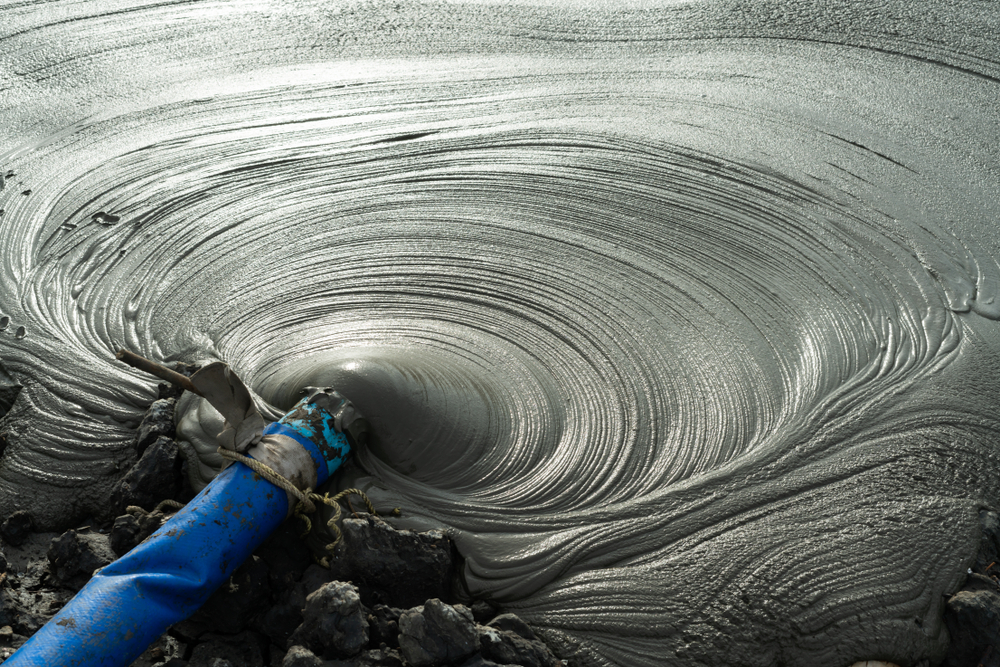High-Temperature Mud Stability Testing
The oil and gas industry relies heavily on drilling fluids or muds to ensure safe and efficient drilling operations. These fluids play a critical role by providing lubrication, carrying cuttings away from the bit, maintaining hydrostatic pressure to prevent wellbore collapse, and facilitating cementing. However, in high-temperature environments, traditional mud formulations can degrade, leading to operational inefficiencies or even safety hazards.
High-Temperature Mud Stability Testing is a specialized service designed to evaluate how drilling fluids behave under extreme conditions typically encountered during deepwater drilling operations. This testing ensures that the muds used are capable of maintaining their essential properties at elevated temperatures without compromising performance. The primary goal is to identify mud formulations that remain stable, ensuring optimal drilling efficiency and safety.
The process involves subjecting a sample of the drilling fluid to controlled thermal conditions that simulate real-world deepwater drilling scenarios. During this testing, various parameters are monitored continuously to assess changes in viscosity, filtration properties, pH levels, and other critical attributes over time. Understanding these metrics is crucial for ensuring that the mud can withstand the harsh conditions encountered during drilling.
One of the most significant challenges in high-temperature mud stability testing lies in accurately simulating the thermal environment experienced by deepwater rigs. This requires sophisticated equipment capable of maintaining precise temperature control while also being able to monitor subtle changes in fluid properties. Modern testing facilities use advanced analytical tools, including rheometers and viscometers, which provide detailed insights into how the fluid behaves under stress.
In addition to physical property analysis, chemical composition plays a vital role in determining mud stability at high temperatures. Analyzing the mineral content, biocide levels, and other additives helps engineers refine their formulations for better performance. By incorporating this information into the testing process, laboratories like Eurolab can offer comprehensive reports that not only assess current formulations but also suggest improvements based on real-world data.
Another key aspect of high-temperature mud stability testing is its application in research and development (R&D). Companies involved in oil exploration often invest significant resources into developing new types of muds tailored specifically for different drilling environments. Through rigorous testing, these companies can identify which components contribute positively to overall performance while eliminating those that could potentially cause problems.
For procurement departments within the industry, reliable high-temperature mud stability testing is essential when selecting suppliers. It allows them to verify that vendors are delivering products capable of meeting stringent operational requirements. Moreover, it fosters innovation by encouraging continuous improvement in product quality and reliability.
Scope and Methodology
The scope of high-temperature mud stability testing encompasses a range of parameters designed to evaluate the performance characteristics of drilling fluids under extreme conditions. This includes assessing changes in viscosity, filtration properties, pH levels, and other key attributes over time. The methodology employed by Eurolab adheres strictly to international standards such as ISO 12954-3:2017 for mud rheological behavior assessment.
- Viscosity measurement using capillary viscometers
- Filtration tests conducted according to ASTM D865
- pH determination using potentiometric pH meters
- Metal ion stability evaluation following API RP 13B-2 procedures
Each step is meticulously executed, ensuring accurate and reliable results that reflect true-life drilling scenarios. By adhering to these stringent protocols, Eurolab guarantees clients receive precise data they can trust when making important decisions about their mud choices.
Eurolab Advantages
Eurolab stands out in the field of high-temperature mud stability testing due to its comprehensive approach and state-of-the-art facilities. Our team of experienced professionals combines deep industry knowledge with cutting-edge technology, delivering accurate results that meet or exceed client expectations.
- Accurate Results: Utilizing advanced analytical tools ensures precise measurements and interpretations of test data.
- Compliance: Adherence to international standards guarantees compliance with global regulatory requirements.
- Custom Solutions: Tailored testing protocols allow us to address specific client needs effectively.
- Rapid Turnaround: Efficient processes minimize lead times without compromising quality.
In addition, Eurolab offers extensive support throughout the entire project lifecycle – from initial consultation through final report delivery. Our commitment to excellence ensures that clients receive more than just test results; they get valuable insights and recommendations for optimizing their operations.





